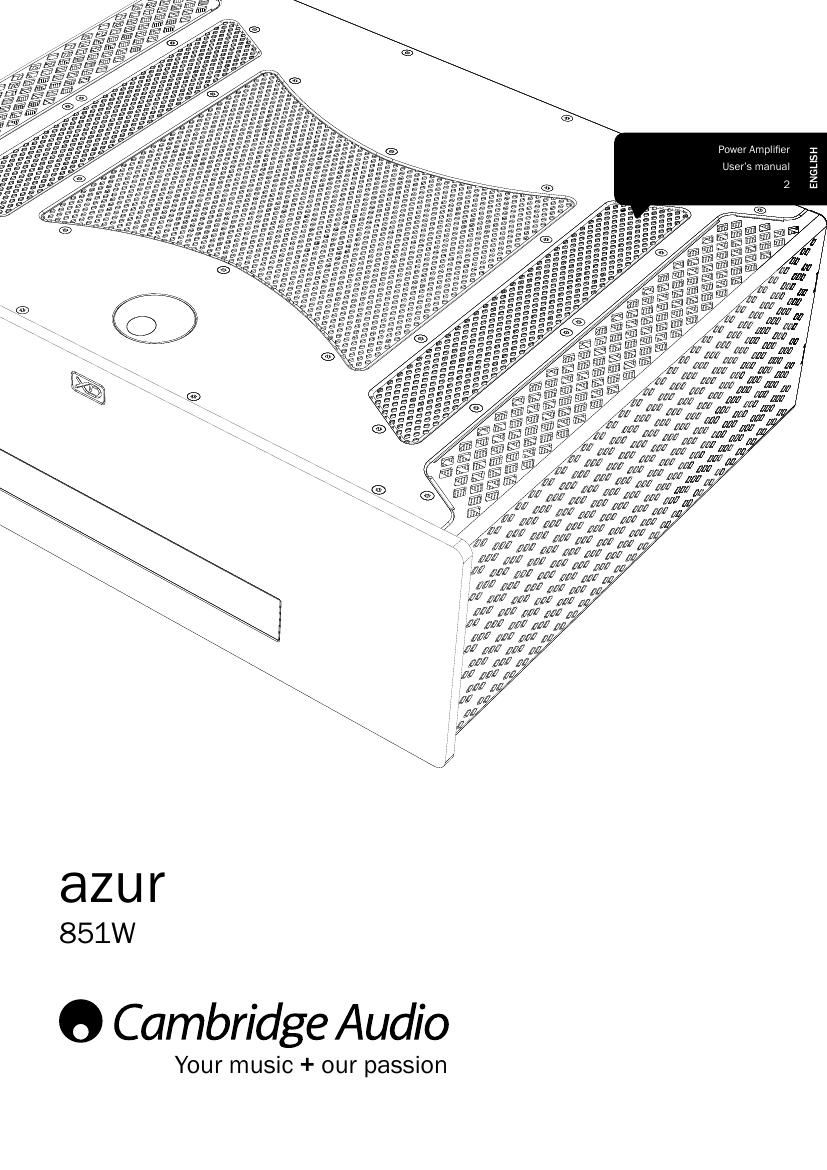Cambridgeaudio Azur 851W Owners Manual
This is the 13 pages manual for cambridgeaudio Azur 851W Owners Manual.
Read or download the pdf for free. If you want to contribute, please upload pdfs to audioservicemanuals.wetransfer.com.
Page: 1 / 13
